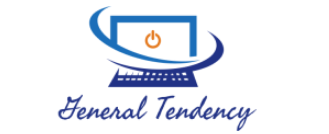In the fast-paced world of photography, owning and operating a successful studio requires more than just a keen eye for capturing stunning images. It calls for a strategic approach to managing clients, invoices, and everything in between. This is where CRM (Customer Relationship Management) comes into play, serving as the backbone of effective studio management. By harnessing the power of CRM, photographers can streamline their operations, deliver exceptional customer service, and ultimately elevate their studio to new heights of success.
Photography is an art form that demands attention to detail and the ability to juggle multiple tasks simultaneously. Balancing creative pursuits with the practical aspects of running a studio can sometimes prove challenging. However, with the right CRM system in place, photographers can optimize their workflows and stay organized amidst the hustle and bustle of daily operations. Whether it’s capturing leads, maintaining client records, or managing invoicing, CRM acts as a centralized hub that simplifies these critical tasks, allowing photographers to focus on what they do best – creating remarkable imagery.
Moreover, client management lies at the core of any successful studio. Building strong relationships with clients is integral to creating a loyal customer base and driving repeat business. CRM provides the tools and features necessary to nurture these connections, enabling photographers to personalize communication, remember client preferences, and stay within reach at every step of their photography journey. With a comprehensive CRM system that fosters efficient client management, studios can expect increased client satisfaction, positive word-of-mouth referrals, and a solid foundation for long-term success.
The power of CRM in the realm of studio management goes beyond basic contact management and appointment scheduling. It empowers photographers to create seamless client experiences, from inquiry to final delivery. By centralizing all client interactions and conversations within the CRM platform, photographers can easily access essential information, track the progress of projects, and ensure that no important detail slips through the cracks. With an effective CRM solution as their ally, photographers can devote more time to their creative pursuits, secure in the knowledge that their studio operations are running smoothly.
In the ever-evolving landscape of photography, mastering the art of studio success requires leveraging the advantages offered by CRM. By integrating a robust CRM system into their workflows, photographers can elevate their studio management practices, streamline operations, and exceed client expectations. With CRM as a guiding force, the journey from photography passion to studio triumph becomes an inspiring and achievable reality.
###Benefits of CRM for Photography Studios
Building and maintaining strong relationships with clients is paramount for any successful photography studio. Fortunately, the implementation of a Customer Relationship Management (CRM) system can greatly enhance studio management processes, leading to improved efficiency, productivity, and customer satisfaction.
Firstly, CRM enables photography studios to streamline their client management activities. With a centralized database, studio managers can easily access and update client information, including contact details, preferences, and previous interactions. This allows for personalized and tailored services, as photographers can gain insights into clients’ specific needs and preferences, resulting in more successful photo sessions and satisfied customers.
Secondly, CRM systems for photography studios provide comprehensive invoicing capabilities. Studio owners can effortlessly generate and track invoices, ensuring timely payment from clients. This not only improves cash flow but also reduces administrative burdens, freeing up time and resources to focus on creativity and delivering exceptional photography services.
Lastly, CRM systems facilitate effective studio communication and collaboration. By integrating communication tools, such as email and messaging platforms, photographers can easily correspond with clients, discuss project details, and share images. This constant and efficient communication fosters transparency and trust, contributing to stronger client relationships and better outcomes.
In conclusion, CRM systems offer transformative benefits for photography studios, enhancing client management, streamlining invoicing processes, and enabling seamless communication. By harnessing the power of CRM, studios can optimize their operations, boost customer satisfaction, and ultimately achieve long-term success.
Streamlining Studio Management with CRM
One key aspect of running a successful studio is effective management. A system that can streamline various tasks and processes is crucial in ensuring smooth operations. This is where Customer Relationship Management (CRM) software comes into play, providing valuable tools for studio owners to enhance their management strategies.
With CRM, studio management becomes a seamless experience. The software allows you to centralize all your client information, such as contact details, project history, and preferences, in one convenient location. This eliminates the need for tedious manual record-keeping and ensures that you have easy access to important client data whenever you need it.
Furthermore, CRM systems provide powerful invoicing capabilities, allowing you to generate and send invoices with just a few clicks. This not only saves you time but also ensures accuracy in your financial transactions. By automating the invoicing process, you can focus on delivering exceptional photography services without the hassle of handling paperwork.
Another key advantage of CRM in studio management is its ability to streamline client management. The software enables you to track and monitor the progress of client projects, set reminders for important milestones, and communicate effectively with clients through integrated messaging features. This level of organization and communication greatly enhances client satisfaction and strengthens your professional relationships.
In conclusion, incorporating CRM into studio management can have a significant impact on your overall success. By harnessing the power of CRM software, you can streamline your operations, improve invoicing efficiency, and enhance client management. Embracing this technology will help you achieve effective studio management and ultimately drive your success in the competitive photography industry.
Improving Client Relationships and Invoicing with CRM
In a photography studio, maintaining strong client relationships is essential for long-term success. By harnessing the power of a Customer Relationship Management (CRM) system, studio management can streamline their operations and enhance their invoicing process.
One of the key benefits of using a CRM in a photography studio is the ability to centralize client information. With all client data stored in one place, studio managers can easily access important details such as contact information, past projects, and preferences. This enables them to provide personalized experiences and tailor their services to meet each client’s unique needs.
Another advantage of utilizing a CRM for studio management is the ability to automate the invoicing process. With built-in invoicing features, photographers can generate and send invoices to clients with just a few clicks. This not only saves time but also ensures accuracy in billing, reducing the chances of errors or discrepancies.
Furthermore, a CRM system facilitates efficient client communication and follow-up. Studio managers can set reminders to reach out to clients for feedback, address any concerns, or even send personalized greetings on special occasions. By maintaining regular and meaningful communication, photographers can foster strong client relationships, leading to increased customer loyalty and referrals.
In summary, integrating a CRM system into a photography studio’s management strategy can greatly improve client relationships and streamline the invoicing process. By centralizing client information, automating invoicing, and facilitating efficient communication, studio managers can enhance their overall studio success and create a positive experience for both clients and themselves.





